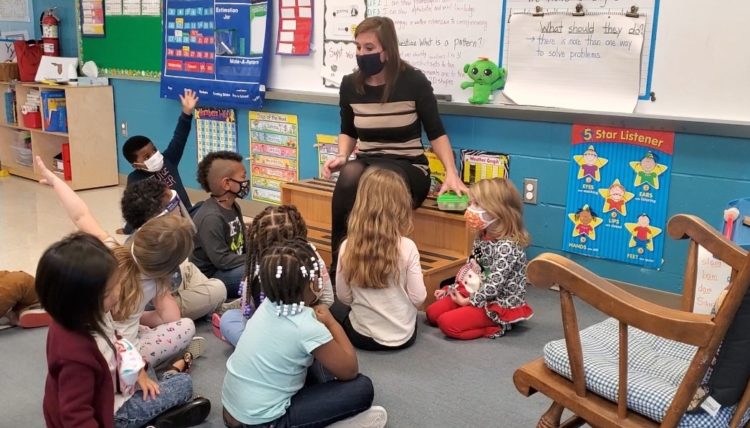Feb. 2, 2021 – The need for social and emotional learning in schools, especially elementary, is clear and Team Duval is addressing that need.
Social-emotional learning, the process through which children learn to manage emotions, build positive relationships, and effectively work together with their peers, is weaved into curriculum and classroom routines by elementary instructors across the district.
“We have seen amazing student outcomes that correlate to increased attention to the whole child and their emotional and mental well-being,” said Marianne Simon, the district’s regional superintendent over elementary schools. “This includes a reduction of misbehavior referrals and suspensions, which means children are spending more time in the classroom and learning environment.”
Fifteen-year veteran teacher, Leah Baker agrees.
The Abess Park educator who teaches voluntary pre-kindergarten says she’s starting the social-emotional learning process early so her students can function properly and independently in today’s world.
“I encourage independence in my classroom by setting daily rituals and routines and allowing my students the opportunity to solve problems on their own first, before I intervene,” said Baker.
Other strategies that Baker integrates into the classroom include creating calm down areas, giving students daily responsibilities, and discussing emotional and personal wellness through group read-aloud sessions.
Baker says she has seen success in her classroom. Success that Duval County Public Schools Crisis Hotline Advisor, Heather Lawson says is reflected districtwide.
Lawson points first to the need for these strategies. During the 2019-20 school year, 64% of all calls to the crisis hotline for behavioral crises occurred in kindergarten through third grades with 23% from Kindergarten alone. This is a noticeable trend across years.
However, she says only 15% of the calls made to the crisis hotline this school year were due to behavior compared to 32% during the same time frame last year.
She says the incorporation of social-emotional learning in the classroom can create endless benefits for students of all ages:
- Improves school and classroom climate.
- Reduces behavior problems.
- Encourages empathy, teamwork, and collaboration.
- Improves relationship and coping skills.
Baker, who has watched behavior issues decline in her classroom, believes this can benefit children and educators. “My word of advice to fellow educators is simple – get to know your students on a personal and emotional level first,” said Baker. “This will make it much easier to understand them on an academic level.”








